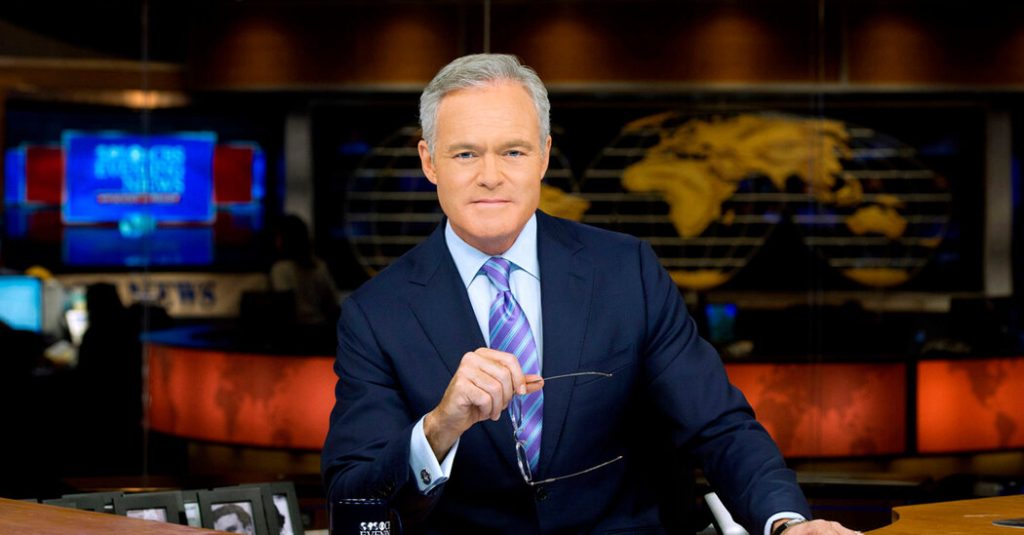Frank Bruni, a contributing Opinion writer, hosted a written online conversation with Kristen Soltis Anderson, a contributing Opinion writer and Republican pollster, and Nate Silver, the author of “On the Edge: The Art of Risking Everything” and the newsletter Silver Bulletin, to explore what polls say about the opening months of President Trump’s action-filled second term.
Frank Bruni: Kristen, Nate, thanks for joining me and helping readers and me understand Americans’ reviews of Donald Trump’s presidency so far. I’m confused, but that’s pretty much my default setting. As Trump approached 100 days, he saw a steep decline in his approval rating, with numbers unusually low for an American president in his first months. But they were still within the normal range for Trump — despite the autocratic orders, the tariff roulette, Elon Musk. And then, over the past two weeks, an uptick, so that the average of recent polls gives Trump an approval-disapproval split of about 45 percent to 51 percent. All said, should he and his allies be panicked, mildly concerned or vaguely reassured by the whole of it and by where he is now?
Kristen Soltis Anderson: We are living in an era when things like job approval are just not able to rise to the heights of previous decades, so 40 percent is the new 50 percent. The ceiling for these numbers is lower than it used to be. That said, I would be concerned about some of the softness I am seeing in numbers around areas like the economy that used to be real strengths for Trump.
Nate Silver: They should recognize that Trump can’t escape political gravity. Most presidents see their approval ratings decline early in their terms, but according to our tracking, Trump’s numbers had a particularly steep decline in April, falling late in the month to about a –9 net approval rating from about a –3 at the start of the month. To put that in more concrete terms, just shy of 10 percent of people who voted for Trump now seem to have regrets, according to the latest Times/Siena poll.
Trump’s numbers have rebounded just a bit. You can pretty clearly attribute most of this to the tariffs, which also produced some of the lowest consumer confidence numbers since the 2008 recession. Trump has somewhat backed off the tariffs, the hard economic data hasn’t been as bad as consumer attitudes, and the stock market has rebounded. If I were his aides, I’d be concerned, but I don’t think he’s in a death spiral yet.
Bruni: Fair, though at times, it really does seem like the presidential equivalent of playing with matches. When I asked you two about his approval numbers and how he was faring, both of you immediately went to the economy. Nate, your site breaks down Trump’s performance on various issues. On the economy, it showed that the percentage of Americans who disapproved of Trump’s economic performance was 13 points higher than the percentage who approved of it. On trade, he was more than 15 points underwater, as they say. On inflation, almost 27 points.
This is the guy who campaigned, above all, as someone who was going to increase Americans’ buying power, lift their financial fortunes and reverse what he denounced — unjustly and histrionically — as Joe Biden’s economic catastrophe. If those numbers don’t change, aren’t he and Republicans toast?
Silver: I do think Trump has probably irrevocably lost some voters’ confidence in his ability to be a competent steward of the economy. So far, that’s maybe from Wall Street elites, who have been very willing to criticize him early in his term. But those attitudes from elites can filter down to rank-and-file voters.
Anderson: The economic numbers matter enormously, both because they’re a driver of the political center and they used to be central to the whole case for Trump: “Don’t like the tweets or the style or the jokes or the insults or all of that? At least your wallet is fatter.”
Silver: “Trump’s good on the economy, and much of the rest of it is Trump derangement syndrome” is an argument that can be persuasive to a certain kind of voter when the economy is healthy but not when it isn’t.
Bruni: And Trump’s economy has more than the sniffles. But every time it seems on the verge of intensive care, Trump tweaks the treatment. By backing off his chest-thumping — and, it turns out, vacuous — threats against China, he may be warding off the worst of price increases, calming the stock market and reassuring some Americans. But will they remember the needlessly herky-jerky turns and stomach-knotting dips and punish him for that? I mean, this is less like governing and more like a really nauseating amusement park ride.
Anderson: If it ends up fine, this will be something of a distant memory come the 2026 midterms. “If” is doing a huge amount of work in that sentence.
Silver: Yeah, the bearish case on Trump’s ratings if you’re one of his strategists — or the bullish one if you’re a Democrat — is that so far, Trump’s numbers reflect voter anticipation of the effects of tariffs, and they’ll get even worse once retailers work through their existing inventory and there are more price increases and shortages. It’s such an own goal to win an election in which inflation is the single most important issue and then turn around and announce a 25 percent tariff on cars — maybe enough of an own goal that Trump seems to realize he messed up.
Bruni: Nate, on immigration, Trump has rebounded to a place where more Americans approve than disapprove of his handling of the issue, though by a very slim margin. How much can we read into that about Americans’ values and about the trade-offs they’re willing to make? Can we conclude that they’ll gladly dispense with a degree of due process — and turn a blind eye to that hellhole of a prison in El Salvador — if fewer migrants are illegally crossing the border and winding up in their communities? Or is there some other way to explain it?
Silver: At a 30,000-foot level, immigration is probably Trump’s least-bad issue. But the data on the case of Kilmar Armando Abrego Garcia is a little hard to read. If you ask more specific questions about that case, people don’t like what they’re seeing. So the question is whether people are looking at politics from the 30,000-foot view or reading all the extensive reporting on Abrego Garcia. And the answer is that most voters are probably doing more of the former.
Anderson: In general, Trump’s top political priority seems to be holding on to his voters and giving his base a feeling that he’s doing what he promised. On immigration, three-quarters of Trump’s voters say they strongly approve of how he is handling this issue. The fact that three-quarters of Kamala Harris’s voters strongly disapprove of Trump’s actions on immigration is likely not raising alarms in the White House.
Bruni: Is immigration perhaps an example of Trump getting points simply for acting? For giving an impression of decisive steps and disruptive reform? I frequently find myself wondering if Trump is sometimes forgiven for any sloppiness (and, of course, it’s worse than sloppiness) because he at least seems to many voters dynamic and a change agent in a country and an era crying out for change. What do you two think?
Silver: The JD Vance version of the argument is basically something like “You’ve got to break a few eggs to make an omelet.” They were elected on a border-security mandate, the procedures put in place by Barack Obama and Biden were overly cumbersome, and if they make a few mistakes, well, it’s not like Abrego Garcia was a nice guy anyway.
Bruni: Eggs, omelet — Nate, you and JD Vance are going to make me ovo intolerant (which could be helpful, given the price of eggs).
Silver: Vance’s argument would be better if when the White House did make a mistake, the administration aimed to fix it instead of rubbing it in the Supreme Court’s face.
Anderson: I definitely think Trump has wide latitude to act on this issue, simply because voters felt we, as a country, went way too far to the left on immigration and paid a price for doing so. Essentially, they feel that we were too nice, too welcoming and that made the problem grow out of control. As a result, they are willing to accept a level of not being nice that might have been unthinkable just a few years ago.
Silver: I will note that what Customs and Border Protection describes as “encounters” on the southwestern border are, in fact, way down. Considerably fewer people are attempting to migrate here.
Bruni: Does competence matter as much as it used to? Or have television performance and social media downgraded it? Trump proudly — flamboyantly — trumpets victories when he has the shards of defeat all around him. And I think some voters, wanting to believe all is OK, decide he’s right. Tell me I’m wrong.
Anderson: Let me reframe slightly from “competence” to “stability.” Last year I argued that one of the reasons Trump might have a leg up on Biden was that Biden’s absentee presidency was giving a “the control room is empty” vibe that suddenly meant Trump looked like the firmer hand on the steering wheel. Trump, Mr. Chaos himself, might look like a source of strength and stability by contrast. If you were someone who voted for Trump because you thought that we needed strength and that Democrats’ weakness had bred instability, you’re probably not loving the ride you’re on. However, the result more than the process is what voters will judge Trump on.
Silver: We’ve just had a couple of books out on how much Biden was struggling behind the scenes. That’s a case where the public was right to be concerned about his competence, and all the White House’s spin couldn’t allay those doubts because the doubts were too grounded in reality. If people see everything from avocados to autos getting more expensive, there’s no narrative to overcome that.
Bruni: Avocados to autos — you’re an alliterative man after my own heart, Nate Silver. OK, let’s talk about those books and Biden’s emergence on “The View” — flattering showcase, anyone? — and his being back in the news big time this week. How much blame does he bear for Democrats’ struggles with voters? In a celebrity-obsessed world where well-known individuals dominate social media and podcasts and such, have parties become even more identified with the presidents that represent them?
Anderson: Parties have always been heavily defined by either the incumbent president or their current presidential nominee. In the absence of either of those things, parties go through this walk in the wilderness, identity-crisis phase to figure out who they are and where they want to go. We are seeing that happen in plain view on the Democratic side. Biden bears an enormous amount of responsibility for the current situation in his party, because rather than the Democratic Party getting to hash this out in a competitive primary, they’ve been stuck in purgatory.
Silver: Democrats have nominated three candidates in a row (Hillary Clinton, Biden, Harris) who were very much creatures of and weather vanes for their party and masters of the inside game, whereas Obama and Trump broke from their parties in important ways — perhaps more rhetorically than substantively in Obama’s case. Trump is putting far less emphasis on fiscal conservatism, abortion or an active role for American foreign policy than his Republican predecessors did. In general, when politicians break from their parties, voters really like that.
Bruni: Kristen, you’ve mentioned your firm’s latest survey. It showed that more Americans identified as Republican (39 percent) than as Democratic (38 percent). And of the 21 percent who called themselves independent, 36 percent said they were more aligned with Republicans on the issues important to them, while only 26 percent said that about Democrats.
Is that a reflection of how tarnished the Democratic brand is, or are there other, more significant dynamics at play? Should it scare Democrats?
Anderson: Right now it isn’t at all clear what the Democratic Party is for. We know Democrats don’t like Trump. But if put back in power today, what would they do exactly? Reheated leftovers of the Harris campaign agenda? A Fight Oligarchy rally crew wish list? I truly don’t know. I do know that the voters in my surveys think of the Democratic Party as liberal but then as weak and corrupt. It is clear Democratic voters want the party to fight Trump more aggressively, but it isn’t at all clear to me what Democratic leaders’ strategy is for doing so.
Silver: I’m going to call it the peak woke era, for lack of other terms, but from circa 2015 through a year or two ago, the most politically active Democrats were extremely hostile toward people who weren’t fully on board with them on social issues or on Covid protocols or voters who didn’t think Trump was quite as awful as they did. That’s a highly unappealing way to expand your coalition. People may agree with you on the policy merits, but they don’t want to own the D label. Harris won independent voters, according to the exit polls, and some of that is people who don’t like the Democratic Party brand but think Trump is intolerable.
Bruni: I keep thinking — and I’ve written this — that Democrats might be making everything too complicated with too much self-examination. We keep finding, once all the commentary has burned out and the campaigns are over and Election Day has come and gone, that voters respond in large measure, as you’ve both noted, to whether they feel improvements or have hope of imminent improvements in their lives. Shouldn’t Democrats just keep a succinct, accurate tally of how Trump and America are doing under his watch, note the shortfalls, document the betrayed promises and leave it there, to some extent? Why isn’t straightforward and simple a winning formula?
Anderson: Possibly. Republicans went through this debate in 2009 and ’10, when trying to figure out how to return to power. Just oppose Obama? Do you need to repeal Obamacare or repeal and replace? How important is it to have a forward-looking agenda of your own, versus just following a quote often attributed to Napoleon: “Never interfere with an enemy when he’s in the process of destroying himself”? When your brand is in bad shape, you can’t just be against something; you have to be in the business of sketching out your own identity and vision as well.
Silver: Yeah, often I think there’s a tendency to overcomplicate. Part of that is because of the professionalization of the political class: Both partisan actors and even nonpartisan analysts are expected to come up with something novel to say at every turn of the news cycle. Sometimes the answer is just to wait it out, avoid doing unpopular things and highlight the issues (namely, inflation) where Trump is most clearly failing to meet voters’ expectations.
Bruni: We’ve talked tariffs. We’ve talked economy. We’ve talked immigration. What’s a very real danger to Trump and to Republicans in the midterms that we haven’t talked about? Where’s a patch of bramble that no one is sufficiently mapping?
Anderson: I’ve always got my eye on foreign affairs and national security. It is the issue that doesn’t matter at all until suddenly it matters a lot. There is a big expectation that Trump is supposed to be out there putting our enemies in their place and keeping America safe. If something goes downhill — funny business with Taiwan, something new and especially horrible with Russia, the Middle East goes sideways — that issue set could re-emerge.
Silver: Well, I guess two areas. One is that if you go back and read the reporting on Biden, you’ll find that his condition got progressively worse throughout his four years. Trump began his second term at 78, the same age Biden was at the start of his term, and so the rate of both verbal stumbles and addled decision making may increase. The other issue is that the G.O.P. lacks human capital, given its disdain for experts of various kinds. Meanwhile, Trump issued a whole bunch of executive orders and ransacked the agencies. I don’t know if it’s more situations like we’re seeing at Newark airport or what, but you might start to see more things simply breaking.
Bruni: OK, lightning round — quick and dirty. You are a foreign leader bearing gifts, and you want to outdo Qatar’s offer of a new Air Force One. What present do you propose for Trump?
Anderson: The Saudis rolled out a mobile McDonald’s palace during Trump’s visit, which was pretty next level. American soft power reflected right back at us.
Silver: Maybe you could buy back hosting the 2026 World Cup from the United States? I doubt that Trump likes soccer, anyway.
Bruni: Maybe you out-gulag President Nayib Bukele of El Salvador and send over the materials and work crew to turn Alcatraz into Mar-a-Lockup.
Next one: Gavin Newsom is a new species, the lib who wants to own the libs. In the interest of that new identity, who should be the next guest on his podcast, and what point of solidarity with that guest should Newsom claim?
Anderson: Stephen A. Smith. They can duel each other for the role of beating up on the excesses of the left.
Silver: I thought it was funny that Newsom had Ezra Klein on the podcast even though “Abundance” is quite critical of Newsom. Maybe Alex Thompson and Jake Tapper (the authors of “Original Sin”) should be on next. I think Democrats need to take ownership of the fact that they totally screwed up on Biden and that the problems ran deeper than just him. He had a whole ecosystem of enablers.
Bruni: Of the following Democratic politicians, listed alphabetically by surname here, which three — and in which order — are most likely a year from now to be mentioned in serious conversations about the next Democratic presidential nominee? Pete Buttigieg, Ruben Gallego, Kamala Harris, Ro Khanna, Chris Murphy, Gavin Newsom, Alexandria Ocasio-Cortez, Josh Shapiro, Elissa Slotkin, Tim Walz.
Anderson: Shapiro, Ocasio-Cortez, Newsom. I notice you didn’t name Gretchen Whitmer, which was fine, because I sold all my remaining Whitmer stock after the White House folder-in-front-of-the-face photos, followed by sharing the stage with Trump. A tough look for a Democratic primary ad.
Bruni: Whitmer is in … a difficult place. By which I don’t mean Michigan, a state I lived in for five years and quite like.
Silver: I’ll put them in order of where I’d draft them in terms of their likelihood of being the 2028 nominee: Ocasio-Cortez, Shapiro, Buttigieg, Newsom, Gallego, Harris, Khanna, Slotkin, Murphy, Walz. This includes just the list you gave me. I’d also list Whitmer higher than some of these.
Bruni: Nate, you’re the numbers guy, and you seem to have a different interpretation of three than I do, because I’ll indeed limit myself to that. I say Ocasio-Cortez, Buttigieg — whose recent banter in the manosphere was a reminder of his extraordinary skill — and Gallego, though I really can’t put them in any order.
OK, finally, who’s the single most effective Democratic communicator right now?
Anderson: Ocasio-Cortez is totally underestimated by Republicans, and I think it is a mistake to underestimate her. I am bullish on our populist moment sticking around, and she is well positioned to channel it for a new generation.
Silver: Bernie Sanders, I guess? The crowds he’s getting, sometimes in conjunction with Ocasio-Cortez, are pretty impressive. He’d probably be the front-runner for the nomination if he were 10 years younger.
Bruni: Yeah, this next cycle is notthe one for Democrats to bet it all on the oldest of the bunch — would resurrect the ghosts of geezers past.
Kristen, Nate, thanks so much. I can’t say I now fully understand our America, but I’m crucial inches closer.
Source photographs by Andrew Harnik and ANDREW CABALLERO-REYNOLDS via Getty Images.
The Times is committed to publishing a diversity of letters to the editor. We’d like to hear what you think about this or any of our articles. Here are some tips. And here’s our email: letters@nytimes.com.
Follow the New York Times Opinion section on Facebook, Instagram, TikTok, Bluesky, WhatsApp and Threads.
Kristen Soltis Anderson, a contributing Opinion writer and Republican pollster, is the author of “The Selfie Vote: Where Millennials Are Leading America (and How Republicans Can Keep Up).”
Nate Silver, the founder and former editor of FiveThirtyEight and the author of “On the Edge: The Art of Risking Everything,” writes the newsletter Silver Bulletin.












